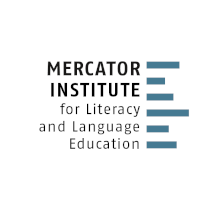Vocabulary Knowledge of Newly Arrived Secondary School Students
For students, mastering an appropriate range and depth of vocabulary is central to all their learning across subjects. To participate in classroom conversations, students need to develop not only everyday, but also general academic and subject-specific vocabulary knowledge. So far, however, the development of everyday, general academic and subject-specific vocabulary of newly arrived students has not been studied in Germany.
This project will investigate the vocabulary size of newly arrived students in comparison to the mainstream students in secondary school. Using frequency-based vocabulary tests, which were originally developed by the Institute for Test Research and Test Development and adapted for the current project, newly arrived students and their comparison group will be tested on vocabulary knowledge in the language of school education – German – and in the language of the first foreign language – English –, since both languages are relevant for success at school. The aim of this explorative project is to pilot frequency-based vocabulary tests for the target population and gain initial insights on their vocabulary size. Furthermore, potential factors that correlate with a larger vocabulary size in German and English will be investigated. The project will feed into a larger-scale project.
In addition, in cooperation with the project “Reference Vocabulary for Schools” which is also based at the Mercator Institute, the project aims to determine what role different input sources play in vocabulary acquisition, e. g. the spoken language at home and the written language in children's books and school textbooks.
At a glance
Objective | The aim of the project is to validate frequency-based vocabulary tests for the target population and gain initial insights on their vocabulary size in order to feed into a larger scale project. |
|---|---|
Duration | February 2021 - June 2024 |
Partners | |
Project Management | Melanie Fuchs |
Project Team | Jun.-Prof. Nora von Dewitz Dr. Sonja Eisenbeiß |
